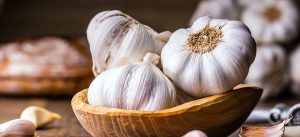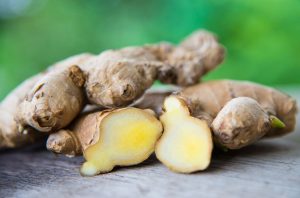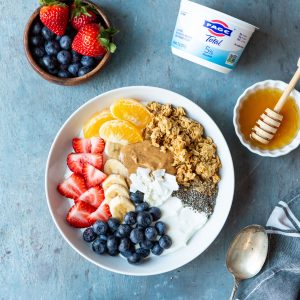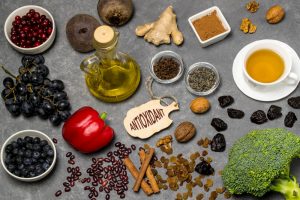7 Ways To Supercharge Your Immunity
How to Help Build your Immunity in the Time of COVID-19
Dear Immune System: Will you produce an antibody, activate memory cells or should I take the help of antibiotics? I am seriously fed up with the cold and flu.
In these dark times, you might be wondering: how can I keep myself healthy? And will swallowing a pill protect me from getting sick? One thing is certain that no supplement or diet can guarantee to be the treatment or can prevent any kind of virus around. But there’s a piece of uplifting news too. There are ways to keep your immune system supercharged, which can help to keep you healthy and give you a sense of control in an uncertain time.
Before going further, it is important to understand what the immune system is and how our body fights against infections.
What is the Immune System and how it works?

The Immune System is a complex network of cells and proteins (B cells, T cells, and Antibodies ) produced by especially the thymus, spleen, lymph nodes, special deposits of lymphoid tissue (as in the gastrointestinal tract and bone marrow), macrophages, and lymphocytes.
The immune system defends the body against infection. When the foreign substances (called antigens) enters your body, the immune system activates to recognize the antigens and get rid of them. B lymphocytes are triggered to produce antibodies. Although antibodies can recognize an antigen and lock onto it, they can’t destroy it without the help of the T cells.
Must-Have Immunity Booster Supplements Money Can Buy
Effect of Age on Immunity

As you age, your immune response towards external infections becomes reduced, which in turn contributes to more infections and other issues.
Respiratory infections, influenza, and especially pneumonia are the primary cause of death in people over 65 worldwide. No one knows why this happens, but according to some scientists, this increased risk correlates with a decrease in T cells, possibly from the thymus atrophying with age and producing fewer T cells to fight off infection. Others believe that the bone marrow becomes less efficient at producing the stem cells that give rise to the cells of the immune system.
A connection has also been found between nutrition and immunity in the elderly. A form of malnutrition common in affluent countries is known as “micronutrient malnutrition”. In Micronutrient Malnutrition, a person is deficient in some essential vitamins and trace minerals that are obtained from or supplemented by diet. Older people eat less due to various reasons and often have less variety in their diets. Older people should discuss this problem with their physician who is well versed in geriatric nutrition because while some dietary supplementation may be beneficial for older people, others can have serious consequences in this age group.
7 ways to boost your immunity
Here are 7 ways to strengthen the immune system that you can follow in your daily life before reaching for the antibiotics (which, in any case, will only tackle bacterial infections).
1. Diet and Immune System
Like any fighting force, the army of immune system marches on its stomach. Healthy immunity warriors need good, regular nourishment. According to researchers, various micronutrient deficiencies like deficiencies of zinc, iron, selenium, copper, folic acid, and vitamins A, B6, C, and E — alter immune responses in humans. So what can you do? Visit your nearby grocery store to look for following powerful immune boosters:

Citrus Fruits and Vegetables:
Some fruits and vegetables are the best sources of vitamin C. These are as following:
- Citrus fruits- such as oranges, grapefruit, guavas, papaya, strawberries, and their juices, as well as red and green pepper and kiwifruit, are rich in vitamin C.
- Vegetables- such as broccoli, spinach, lemon, limes, cantaloupe, baked potatoes, and tomatoes—which also have vitamin C.
Vitamin C tends to increase the production of White Blood Cells. These are the key cells in fighting infections. Since your body doesn’t produce or store this micro-nutrient, you need a daily recommended shot of Vitamin C for continued health.

Garlic:
It is found in almost every cuisine around the world. It not only adds a little zing to your food but also has a great health benefit. According to the National Centre for Complementary and Integrative Health, garlic boosts the immunity as it is rich in sulfur-containing compounds such as Allicin. A study by the Journal of Immunology Research found that allicin increases white blood cell count, which fights free radicals and harmful bacteria.

Ginger:
Ginger has anti-inflammatory properties that help to soothe a sore throat and other inflammatory illnesses. According to recent research, ginger helps in boosting immunity by decreasing chronic pain and lowering blood cholesterol levels.

Yogurt:
You all must have heard and had Greek Yogurt. But do you know why it is as important as an immunity booster? It is because the Greek yogurt contains “live and active cultures”. These cultures tend to stimulate your immune system to fight infections. Try to prefer plain yogurts over preflavored yogurt loaded with sugar. You can add a topping of healthy fruits and a drizzle of honey to your plain yogurt to suit your taste buds. It also a rich source of Vitamin D. Vitamin D regulates the immune system and boosts the natural defense system of your body.

Antioxidant-rich diet:
Antioxidants play a crucial role in repairing damaged DNA and boosting the body’s ability to repair itself. Free radicals produced by the body essentially prompt an inflammatory response in the cells, while antioxidants work to neutralize them and reduce this response. Foods rich in anti-oxidants area as follows:
- Both green tea and black tea are rich in flavonoids, a type of anti-oxidant. Green tea leads the way due to the presence of epigallocatechin gallate (EGCG), another powerful anti-oxidant.
- Berries, dark chocolate, artichoke, coffee, kidney beans, apples, tomatoes, green leafy vegetables, and oily fish are among other sources

Poultry:
At the time of cold and flu, chicken soup is the ultimate savior with a placebo effect. Poultry such as chicken and turkey is rich in Vitamin B6. About 3 ounces of turkey and chicken contains 40% to 50% of your daily recommended amount. Vitamin B6 has a vital role in the formation of red blood cells. Stock or broth made by boiling chicken bones contains gelatine, chondroitin and other nutrients important for gut health and immunity.
2. Hygiene and Immune System
Hygiene Hypothesis:
Your baby drops a rattle on the floor. Would you apply the 5-second rule, or would you quickly throw it away? Or could those germs be good for him/her? Well, kind of.
According to the “hygiene hypothesis”, exposing people — especially babies and young children — to different kinds of germs can keep them from developing illnesses and diseases that affect the immune system. It says that our bodies need “practice” fighting germs.
“In the 20th century, we started changing the way we live. We live in very clean boxes. Water is immaculate. The food is nearly sterile. Exposure to bacteria and soil is less common,” says Joel Weinstock, MD, chief of gastroenterology and hepatology at Tufts Medical Centre and professor at Tufts University. But being super clean may not be good for growing immune systems.
“Certain diseases that were unknown in the 18th century and earlier are showing rage now.” But we also cannot complain of dying from cholera and the plague. So does that mean we can stop washing our hands and can eat unhealthy food? Not.
The “old friend’s theory,” which takes the hygiene hypothesis further, states that exposure to some friendly germs helps us. But we still have to limit being around germs that cause serious illnesses. So where should we draw the line?
Germs: Where to fight?
Here are some key points to focus on to keep your family healthy and safe. You can be “germ smart,” by sticking to some basics, say the experts.
- Use separate cutting boards and utensils for raw meat, poultry, and seafood. Wash countertops, utensils, and cutting boards in hot, soapy water after use.
- Cook whole meats to 145 F, ground meats to 160 F, and chicken and turkey to 165 F.
- Don’t leave out food for more than 2 hours. When it is warm outside, keep it to less than 1 hour.
- Disinfect kitchen counters before and after preparing food. Use sanitizing wipes and disinfectants.
- Disinfect bathroom surfaces often — especially if someone in the house is sick.

Wash your hands often, especially before and after preparing food, after handling pets, after going to the bathroom or handling diapers, and whenever they look dirty.
3. Exercise and Immunity:

Regular exercise is the key to healthy living. It improves cardiovascular health, lowers blood pressure, maintains a healthy weight, and protects against a variety of diseases. But does it help to boost your immunity naturally and keep it healthy? Just like a healthy diet, exercise does contribute to general good health and therefore to a healthy immune system. It may promote good circulation, which allows the cells (especially white blood cells) and substances of the immune system to move through the body freely and do their job efficiently.
According to a study by the Medicine & Science in Sports & Exercise journal, the same benefits can be achieved with regular weight (resistance) training too. It increases body temperature and heart rate (another factor that contributes to killing bacteria). This study, however, also came with a caution: any exercise done for 75 minutes or longer at a high intensity causes a rise in hormones, which can compromise the immune system. So, a balance of low and high intensity should be maintained– and if you’re starting to feel under the weather, don’t go all out, but do keep moving.

Yoga and meditation are equally effective options for indoors.
To know more about yoga poses to boost your immunity, refer to this video
4. Vaccinations and Immunity:

Have you encountered minor symptoms like fever after getting a shot of a vaccine? Well, such symptoms are normal to expect as imitation infection causes the body to build immunity by producing antibodies. Once the imitation infection vanishes, the body is left with a supply of “memory” cells. These cells will remember how to fight that disease in the future. However, it takes a few weeks for the body to produce memory cells after vaccination. Therefore, a person infected with a disease just before or just after vaccination might develop symptoms and get a disease, because the vaccine has not had enough time to provide protection. In general:
- Children should receive the recommended childhood vaccinations.
- Adults should make sure their vaccinations are up to date.
- Travelers should get any necessary additional immunizations.
5. Lifestyle and immunity:

- Kick back and chill:
Little stress can be a good thing. It makes your body ready for a challenge. But if it lasts too long, that’s bad news. Studies show it can weaken the defense system of your body. Avoid it when you can. Take time to unwind your mind and soul and do things you enjoy.
- Get a good night’s sleep:
Without it, your immune system won’t have the strength it needs to fight off illness. An adult needs about 7 to 9 hours of sleep a night. To get better sleep, stick to a regular bedtime schedule, keep your day busy, skip caffeine and booze near bedtime, keep the bedroom cool, and give yourself time to unwind at the end of the day.
- Cut back on booze:
Alcohol plays a major role in how we socialize and celebrate. But too much alcohol intake can weaken your immunity and cause you to get sick more often. How much is too much? More than two drinks a day for men and more than one for women.
- Kick the nicotine habit:
Do your immune system a favor- give up smoking. If it takes you a couple of tries before you quit, give it a try! Take your doctor’s advice on how to make this major life change. Stay away from second-hand smoke, too.
6. Be positive:
The cells of your body react to everything that your mind says. Negativity brings down your immune system. When you have good thoughts, your defense system works better. Savor the things you enjoy. Look for a silver lining — even in gloomy times — and try not to dwell on the bad stuff. To quote a famous Julia Roberts movie “Eat, Pray, Love” “Smile with face, smile with mind, and good energy will come to you and clean away dirty energy”
7. The best immune-boosting supplements:
- Vitamin D: Promotes bone health and plays a role in regulating calcium.
- Vitamin C: Replenishing vitamin C levels when you’re feeling run-down is an effective way to support fading energy levels.
- Zinc: An unsung hero, zinc activates defense cells, which help to support the immune system. Taking a zinc supplement shortens the lifespan of symptoms of colds and flu.
- Omega-3: Several studies have shown that omega 3 is associated with boosted B-cell activity which is a vital part of our immune system.
To know more about immunity booster supplements, refer to this video




